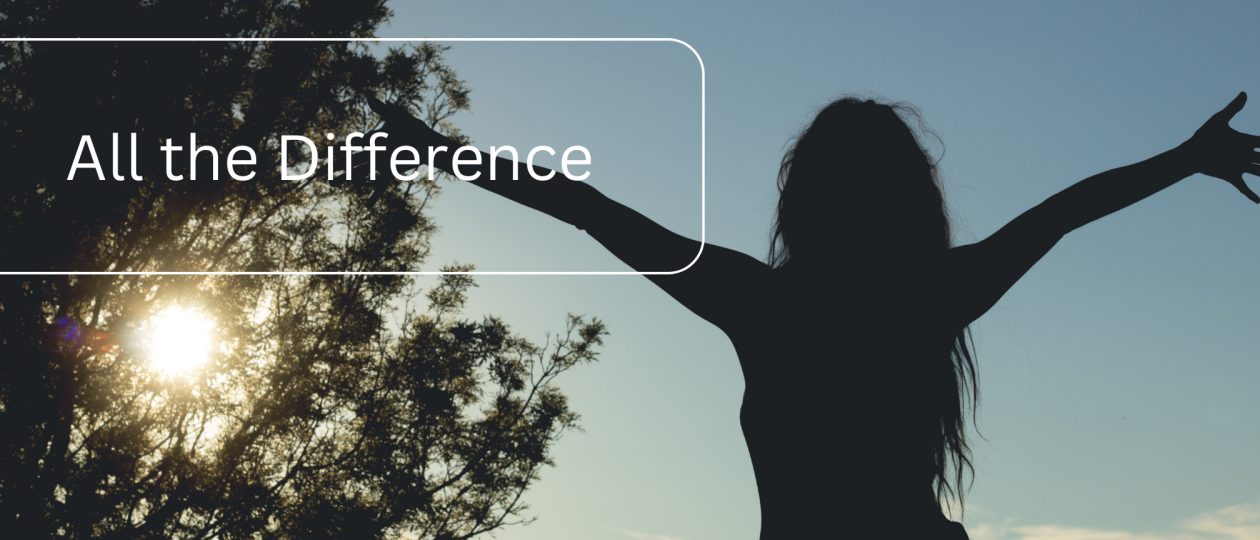All the Difference
Life often feels like one long search for the next thing that just might make all the difference. Depending on your circumstances, personality, and even daily mood, that could mean a lot of different things. It could mean resolving a health issue, solving a financial crisis, finding love, realizing a lifelong dream, or any number of other things. Billion-dollar industries exist for the purpose of selling you solutions to all those things—some of which really work, or are at least useful, and some much less so.
But when people really do find the means to change their life—that one revelation or intervention that transforms them from the inside-out for the better—there’s rarely much commonality between them. A long time ago, when I was in the process of studying all manner of different alternative healing techniques, I realized that there was usually a “perfect modality” for a given person that would work almost like magic… but it was always different, so finding the right one was a needle-in-a-haystack scenario. This is a problem because most practitioners only know one or possibly a few methods, and an outsider just looking for what they need can only roll the dice.
But I’ve come to realize that there is at least one commonality when it comes to changing your life: belief. You see, no path forward can take you very far unless you’re willing to commit to it. Not hesitantly, until the first real roadblock, but fully and eagerly. You can see this in the world at large, which changes for the better primarily through the actions of visionaries—people with not only the foresight to see what could be, but the faith and passion to make their vision a reality.
I’ve often stressed the importance of going on a personal journey to discover the truth for yourself: what you believe, according to your own reasoning and experiences, to be the meaning of life, the truth of the universe, and the right purpose of us as human beings. This is important not only for the obvious reason that living righteously for good ideals make life more worthy, but because the strength of the belief itself is enormously valuable.
Think of the placebo effect in medicine. Even a sugar pill can make a huge difference to someone’s wellbeing, if they believe it will. But this isn’t the only way belief can affect a person. There’s a lesser-known term, “nocebo,” which describes a negativebelief in something that isn’t true. For example, a fear that you’re going to get sick. Unsurprisingly, this works in the same way as placebo, with the fear making itself more likely. But there is a third type of belief as well, “de-facto.” This one simply means a belief in the truth, and as should be expected, is the most powerful by far.
De-facto should be our goal, but I think the most important thing to remember from moment-to-moment is that beliefs have to be consciously tended. Remember that most people tend to naturally lean about 80% to the negative in their thoughts and beliefs. Ladies and gentlemen, we can do better than that. We just have to remember to try.
Have a blessed, wonderful day!
Dr. Alex Loyd



